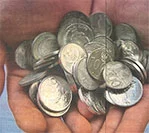THE spat between Australia and Indonesia that was sparked by the suggestion that the Indonesian government, led by President Joko (Jokowi) Widodo, ought to show clemency to two convicted Australian drug dealers in recognition of Australia’s aid to the country in the past, has taken on bizarre proportions.
Apparently, some Indonesians in the province of Aceh -which was hit hard by the 2004 tsunami and who were recipients of Australian funds -have even begun a collection drive, asking fellow Acehnese to contribute money so that Australia’s aid can be paid back, and that they no longer have any obligations to their southern neighbours.
Though Indonesia-Australia relations have always been complex, and were strained over the past couple of years as a result of revelations that Australia had been spying on leading politicians in Indonesia, this new debacle seems to be more complex than others.
Additionally, it brings to light a bitter truth that is well known to realists in the political arena, but which may be harder to swallow for tender-hearted liberals: that foreign aid is never really about aid and that there is seldom any real altruism in politics, particularly in the international arena.
The Australian establishment has tried to repair the damage that has been done by sending out feelers and assurances, but it ought to be noted that Indonesian society is also particularly sensitive to the convoluted politics of foreign aid and development assistance.
After all, in the 1960s, it was president Sukarno who had famously stated, “to hell with your aid!”, when some Western governments were trying to push him and his government into a corner, while suggesting that he ought to follow certain political-ideological paths that were set by foreign states, instead.
Sukarno was among the first Indonesian leaders to note that foreign aid often comes with political conditions attached, and that aid is hardly ever given for free, or from the goodness of another government’s heart. Such things are merely polite fictions in international relations, and Sukarno was not about to mouth the same platitudes, while he rode on his nationalist high horse.
Indonesians today also feel that the time has come for their country to be given the status and recognition that it has long deserved. And in Indonesian media and intellectual circles, the question is sometimes raised: why on earth should Indonesia be a recipient of aid when it is so rich in resources and ought to be giving aid, instead?
When Prime Minister Tony Abbott spoke about how and why Indonesia ought to be thankful for the aid it had been given in the past, it struck a raw nerve among millions of Indonesians across the political spectrum, and the backlash is becoming apparent, now.
All in all, it ought to be remembered that aid and development assistance are tools of diplomacy and geopolitics, and that as tools, they are meant to be wielded deftly and nimbly, with some degree of tact, as well. To give aid, and then expect or demand gratitude and appreciation seems somewhat hypocritical, and can only strike the wrong chord with those on the receiving end.
Countries that ask and receive aid, on the other hand, ought to be wise enough to know that there is always an invisible bill that will be snuck in during the bargain, and that sooner or later, that bill will have to be paid.
As Indonesia slowly, but surely, rises to the occasion, the day may come where it will no longer accept or expect such aid from countries that expect hefty returns in favour. The oft-quoted phrase about Greeks bearing gifts comes to mind, and what is true of the Greeks may be true of Aussies, too.
Article by Dr Farish Noor which appeared in New Straits Times, 23 February 2015.





